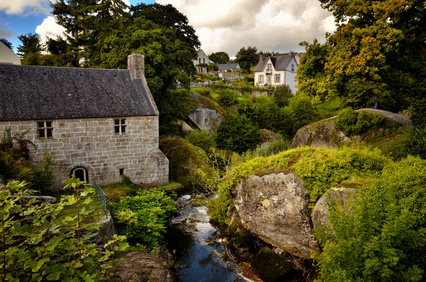
To see and hear the whole webinar in recorded form simply click on the link and follow the instructions.
https://register.gotowebinar.com/recording/566268671271223042
And for the Code of Ethics itself.

To see and hear the whole webinar in recorded form simply click on the link and follow the instructions.
https://register.gotowebinar.com/recording/566268671271223042
And for the Code of Ethics itself.
May the most culturally appropriate team win…
As 32 teams line up to compete in the Russia 2018 World Cup, we ask how big a role will culture play in determining the winner? In this light-hearted piece we discuss the implications of country difference on the performance of national football teams.
Warning; Do not put your hard earned savings betting on the findings of this article!
Are They Hungry Enough?
Have you ever wondered what the overarching cultural criteria for winning in football is? The obvious starter is hunger to win. Interestingly, competitiveness has been studied and country comparisons have been made. On a global scale the USA is the undisputed champion. With less than 5% of the world’s population they account for almost 24% of the worlds economy. That requires a high degree of competitiveness. BUT they are rubbish at soccer. Go figure.

Related to competitive behaviour and the drive to win rather than lose, aggression is a factor and, one of the fathers of culture, Geert Hofstede, measured masculinity of culture which can be seen to overlap with being macho (at a stretch.) So. Which is the most macho country? There is no obvious winner but the contenders would have to include Russia, Ukraine and Brazil (forget the man bags – look at the street life.)
Systematic
If you believe that Russia 2018 has already been won on the training ground and the whiteboards of the classroom and in the feeder schools and the coaching academies you may be right. Cultures can be measured for planning, striving for perfection and a focus on task. When we reviewed the Brazilian World Cup of 2014 Germany surprised the whole of South America with their extraordinary long-term strategy of grooming young German footballers from the moment of conception through birth, youth and up till the final whistle.
This extraordinary dedication to process, preparation and pathway paid off as never before. So the planning champions of the World – Germany must be taken seriously. If organised cultures are in with a shout we must add Japan, Sweden and Iceland to the mix as well. (Who ever thought Iceland would be here?)
Taking Risks
Conversely, is it the flamboyant individual flair of the boys upfront that wins matches? Culture studies provide a measure of risk taking, risk acceptance and active risk avoidance into account when comparing countries. Ironically, on this scale, Germany would be placed as highly risk avoidance. They actively plan to anticipate and eliminate uncertainty and prepare for all eventualities in extraordinary detail. If we look at the magical football of South America, we see the opposite where flare, superhuman talent and the theatrical make for a good game. The nearest contenders in the would have to be Spain, Portugal and France. It is interesting to note that there is a correlation between risk-taking and a fatalistic view of the world. In the examples we’ve mentioned here the Catholic faith provides the external input. “If God wishes it to be so, we will win the cup”. Never underestimate the motivating power of a vast external force. Religion has shaped the behavior, the economies and the politics of most of the world. Why should it not also play a part in football?
Rule Breaking
Zinedine Zidane’s head butting of Italy’s Marco Materazzi in extra time at the 2006 World Cup Final (in Zidane’s final professional game) is the classical example of rule breaking. It was an arbitrary, but an automatic reflex to an insult received about his mother. Sometimes principles and deep personal values trump the playing of the game and sticking within the rules.

It is fairly obvious that in a difficult close fought match you need to keep 11 players on the pitch. A red card will rob you of a full team and multiple yellow cards will reduce the talent available later on in the competition. Whilst rule breaking can provide individual flair, the cumulative effect is negative in any one competition, especially involving a knockout element. So, will we see the rule breaking countries making progress? England, Portugal and Russia. If one maintains a detached analytical view, this random and arbitrary adherence to the rules is a risk too far and sabotages a country’s chances.
Power
Political, social and football power comes in two structural forms – vertical and horizontal. With the vertical structure, the boss is the boss and the player is the player. The power is kept by the captain, the coach, or the country manager. What they say goes. The players benefit from this set up because they gain certainty, direction and a clarity of the task in front of them. If the tactics and plan are good enough, horizontal power can be motivating and effective in execution on the pitch. The hierarchical countries are Russia, Ukraine, Saudi Arabia, Poland, Japan, S. Korea and France.
The alternative structure is functional power, equality and democracy. Famously in, Swedish society, decisions are made collaboratively and in an inclusive fashion. Everybody is listened to, the quieter members are respected, and the collective direction is decided and followed. Off the pitch this can be powerful. On the pitch this can be disastrous. The democratic decision makers in Russia 2018 are Sweden, Switzerland, Germany, Denmark and Iceland.
A third choice in this section is reserved to one special country – Belgium. The Belgian compromise is a unique cultural phenomenon where, when offered the choice between black-and-white, the Belgian chooses grey. Not famous for performing well in any football competitions at the national level, we all have a soft spot for this plucky little country.
Direct communication
What do you think is required on and off the pitch? Part of the spectator entertainment package in any big competition, is looking at the communication style of the national coach. Are they calm, controlled and well-dressed? Do they communicate with simple loud commands? Or do they gesticulate like a conductor leading the orchestra playing the rousing parts of the William Tell overture?
If a coach gives direct and obvious input, then the other team can hear it too. There is an argument for indirect verbal language and disguised non-verbal communication being of more use when deployed amongst a perceptive team. Who of our 32 bands of brothers has this combination of indirect communication and subtle context interpretation? The results may surprise you. If this is a contributing factor to winning silverware (goldware) we could be in for a good competition. The countries that stand out are England, Japan and Serbia.
If you don’t believe subtlety wins matches, then you’re likely to put your money on the low context obvious verbal communicator teams. They include France, Germany, Spain and Australia.
Team or individual?
The final contribution from the science of cultural measurement gives us mixed results. Do we think a collective and group spirit promotes a healthy distribution of motivation, a glorious division of responsibility and ownership, and an advanced level of cooperation, and will their coordinated efforts be good enough to win matches?
 Don’t try this at home…
Don’t try this at home…
Or, do we remember individual flair and the exceptional solo physical effort of a standalone hero as providing the defining moments of many competitions? Certainly the latter is what endures. Famous interculturalist, George Simons would say, remember that the man of the moment, stands on the shoulders of others. The contrast in this last criterion could not be more stark. England’s history has been one of the extraordinary individual dynamism often let down by the rest of the team trotting along beside them. Germany has benefited from the even and consistent support of the team reducing the pressure on individual star to perform alone. And historically… They have done better.
An alternative ending.
Decades of study in the field of culture throw up strange and unexplained phenomena. We have not factored in the support of the crowd. This must be a major factor for the great successes of South American teams and Spanish football. And, let’s add another important question – What are the people drinking? There are three main alcohol groups in Russia 2018

The beer drinkers – in it for the long haul, slow and steady, emotionally balanced with an even workplace. (England, Germany, Denmark and Belgium.)
The wine drinkers – emotional, artistic and graceful they are poets, philosophers and performers. It is all about drama and can end in triumph or tragedy – nothing in between. (France, Switzerland, Serbia, Croatia, Spain and Portugal)
The spirits drinkers – Courage, soul and drama typify this group. Complete loyalty to each other, sacrifice for country and team, and, heroism also marks out the firewater teams. (Brazil, Russia, Poland and Ukraine)
Conclusion – so science and culture indicate stronger performances then you might imagine from Switzerland, Sweden and Iceland, great progress by France, Spain and Serbia, and heroic efforts by England and Germany. But never, ever discount Tunisia!

Warning – Matthew Hill does not know that much about football!
2PM Dutch Time, 25th June 2018, 1PM, UK time
Sietar Netherlands has recently introduced a Code of Ethics. It has not always been easy. Their journey to finally realize a Living Code of Ethics, combined with a compliance procedure and a compliance committee, has taken three years.
Join us for this special webinar 2PM, 25th June 2018 to meet the three Sietar members that were deeply involved from the beginning.

They will be happy to share their breakthroughs and methods with other Sietarians and interculturalists interested in building up professionalism and process within their own national Sietars and organisations.
Jacqueline Franssens represents the board of Sietar Netherlands and Teuni Looij and Yvonne van der Pol will represent the working group that arrived at the Code of Ethics. They will tell of their highs and lows on the journey to successfully making a robust Code of Ethics.

In the webinar they will answer key questions; Why a Code of Ethics? How did they organize the work? And, How did the process evolve? On what topics did they receive support? And, Where did they encounter most resistance? Finally, Why did they move from working on a Code of Conduct and end up deciding for a Code of Ethics?
Join us for this important broadcast and do please take the opportunity to ask your questions and discover for yourself what is needed to reach a meaningful outcome.
To register simply click on the link and follow the Gotomeeting instructions.
https://attendee.gotowebinar.com/register/7987223390340296449
Strategic Approach vs. Quick and Dirty?
Having just returned from the SIETAR Switzerland congress in Lugarno where I was surrounded by enthusiastic independents, many of who were busily growing their own businesses, one question struck me as most important – What do I do first?

To build up a complete marketing funnel with experienced based assets takes time. It can be a multi-year project that will require dedication, thought and plenty of external energy and opportunity.
As I have said many times – This build centres on 4 products – 1) The Professional Interrupter – an attention grabbing and valuable asset that is strong enough to stop a busy and successful decision maker for long enough for them to take notice of you. 2) The Product 4 Prospect Asset – An exchangeable item that promises the delivery of value to a cold contact in return for their Opt In – you give them some knowledge and value and they give you their first name, last name, E Mail and permission to contact them. Simple. 3) The Trip Wire – Another small and valuable package that represents a bargain for the price. What could you build and sell for €20? It must represent more value than the perceived cost would indicate, so that you can convert cynical and critical outsiders to become insider tribe members who can warm to your intelligence and experience. 4) Your Core Deliverable Product – The thing you are most passionate about, sold to the insider tribe member, who is ready to appreciate what you have crafted. They KNOW it represents value and, so, will happily pay a premium to receive it.
Building a Crowd.
There are many contact points required and much interaction to build a warm and loyal crowd who will come to know you, like you and trust you to a level where they will confess their flaws, weakness or gaps and ALLOW you to help them. The key here is your reputation – Something that is built in THEIR hearts, stomachs, minds and memories. Remember – they own your Brand. That is where it lives – with your audience, your list, your database, and, in your new family of followers.
Quick and Dirty
Having said all of that (in 350 words) there will be irresistible opportunities that pop up and come your way, out of the blue, and that can generate great commercial returns.
Here it is about scrambling all of your resources together quickly to construct a credible offer and take advantage of this one time gift.
80% is good enough.
Is it time to fight the perfectionist in you and get that outline out quickly? Are you prepared to fill in the gaps later? And. Will your expedience pay off?
What should I do first?
So, we come to a hybrid approach – Keep on track with your long strategic game of building high quality and long lasting assets AND go for it when the sun shines just for a moment. Ironically, it can be those one-time deals that help build your credibility in the longer term and, reacting quickly to lightning chances can really help you to build your resilience, agility and intelligence when it comes to marketing and closing deals later on, when your company is fully formed and ready to take on all comers.
About the Author Matthew Hill is a trainer, author and coach helping new independent trainers and coaches to get more business in through the door. He is running a Going for Growth bootcamp for independent trainers in The Hague, 17th to 19th August 2018. Details at culture99.wordpress.com.

The Hague – Where the next Intercultural Training Channel Bootcamp will take place in August 2018.
How did this wild adventure start?
The context
Having talked about a more authentic, shared life together during holidays walking the grand randonnees, in September 2017 we finally realised our dream, upped sticks and moved to Brittany, Western France to start a new adventure. The first thing to say is obvious: when dreams become reality they are no longer dreams; and this is where our story begins.

The project: to set up and launch a residential centre for training courses, workshops and retreats in the peaceful and inspiring surroundings of rural France.

Part 1 of the Story – Months 1 – 4
Starting as we meant to go on, and in my case with 30 years’ experience of giving intercultural integration advice, we were determined not to fall into the trap of relying on a support network offered by other Britanniques….no! We were going to integrate right from the beginning!!!! We set about asking for advice where the French go: at the mairie, the CCI (Chamber of Commerce) and of course in the bakery and tabac.
Observation 1: the advice and insights given by others who have done the same thing is invaluable, but especially in the form of person-to-person contact. There is very useful objective advice online, but internet forums are generally to be avoided!
Step 1: moving in….
Early indications: deliveries have to be guided in by phone. Mostly they have satnav but this is not to be trusted. We found that about 3 conversations were necessary for every delivery. Where does that figure on Hofstede?? Problem: I thought I spoke French, mais non! The phone was impossible. Every response was met with what seemed like a whole life story while I was still deconstructing the first greeting. I was also frankly out of the habit of answering the phone and talking to a person rather than a robot…

“Please, what is the context??” I plead, trying to figure out yet again who this was and, even more challenging, where they were – since we didn’t know the geography any better than them!! In our area houses do not have names, so nobody knows where to direct a delivery if you have just moved here, because they don’t know you… Oh and dont’ worry about why that package arrives and leaves not from the post office but the coin fumeur (…..smokers’ corner) tabac in the next village….
Observation 2: so we need to be known!!!! …Start with the “weak ties”…neighbours, baker, newsagent…..
Step 2 Get registered…Grappling with bureaucracy, processes and “the system.” As we intend to be fully integrated into the community, working and living for the majority of the year in our little village, we need to set up our official support network. The problem is that when we ask the locals, they give us the answer but they don’t realise that we are the equivalent of David Bowie in the Man Who Fell to Earth…We don’t know the background, we haven’t grown up with the way the system is organised; so each meeting is positive, friendly and helpful, but we still come away with a feeling of mild panic that we still don’t really understand what is going on because we can’t put the “whys” with the “whats”. We feel as if we are getting almost nowhere fairly slowly, but I still have total faith that suddenly, like climbing a mountain, we will reach the top, having matriculated and received notification of our taxable status.
The result is that we go to all the offices we are directed to but often in the wrong order. After every meeting with another very helpful civil servant we come out encouraged and optimistic, but still not quite sure if anything has moved on. Problem: if you don’t know the system you can’t tell if we are progressing. Observation: wow it cannot be exaggerated how disorientating it feels to arrive in the new system. After 4 months we’re not yet registered with health and social care but we think we have managed to register the business and we have definitely managed to register the car…born in Italy, raised in UK and naturalised in Franc.

We meet the mayor and get to know the staff at the mairie, which has lists and records of everything and everyone in the commune and is the go-to place for everything: getting planning permission; inviting international visitors who need visas; forming a club; contributing to the newsletter; picking up bin bags. Here you can’t be invisible and you are instantly accountable. Next, off to the bank to open an account – armed for the second meeting (the first meeting appeared to be relationship building) with proofs of address/ residence/birth/ proof of income. The application process is personal: “Madam has travelled a lot” and is all done with the utmost courtesy and friendliness despite the fact that our financial investment is minimal to tiny.
What a huge learning curve – fascinating, mentally tiring and baffling… but soooo interesting, frustrating – and sometimes bizarre. As an intercultural professional I am genuinely interested in the underlying, the abstract, the philosophy… how come everything is so different?….
What do I love about France so far?…the focus on people; the fact that you can be neither unaccountable nor invisible – the close relationship with the commune . our mayor sees to that – you are acknowledged (“weak ties”) everywhere you go, and after around 4 months we are starting to get more than a “bonjour”……petit a petit…… I love the fact that everything is discussed before anything is done – then it is done with absolutely no nonsense, and the person who has done whatever it is, is automatically accountable for their actions… and there is a kindness and a sensitivity both to the human condition and to beauty and art. Oh yes and although we are STILL finding the 2 hour lunch break annoying because for 30 years we have been programmed that that is when you pop out to get things…… I really appreciate that all working people have 2 hours a day where they mostly eat together, talk together and bond…….. And the space around us, and the lack of M6 motorway (or any) traffic.
What I don’t like? Probably all of the above on a bad day!!!!
Until the next time,
Daphne
About the Author – Daphne Laing is a language and intercultural training specialist now based in France with a long career in training and academia. During the 1990s she worked in Executive training at Regent Executive and Lydbury English Centre before joining Higher Education where she headed up the Centre for Language and Communication Training during the halcyon years of Internationalisation in UK. During that time she was involved in several EC funded projects to that end as well as partnership development activity in places as diverse as Sri Lanka, Kurdistan, Burma and China. Her practice is deeply rooted in observation and discovery and on encouraging personal reflection and growth. She is now working as an independent consultant and trainer and is setting up an inspirational residential centre for education and personal development events and courses in Pen Ar Bed (top/head/centre of the world in Breton) in Western France.